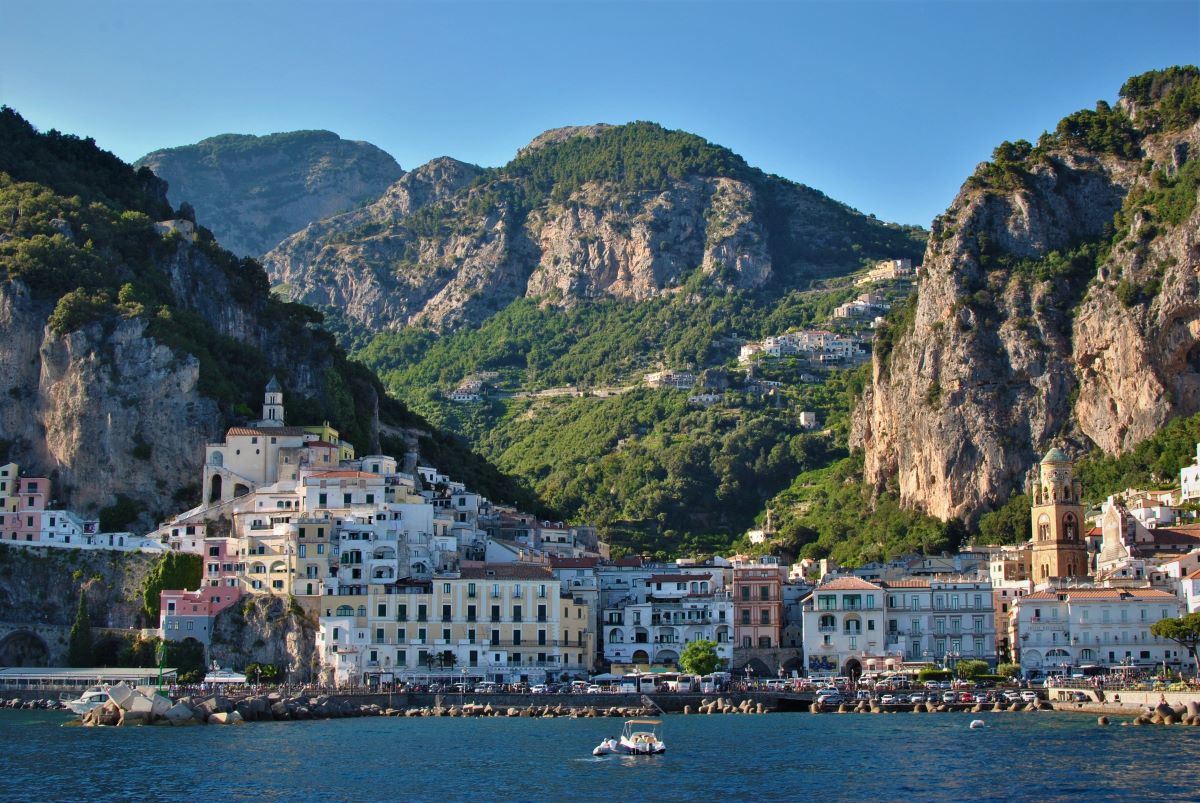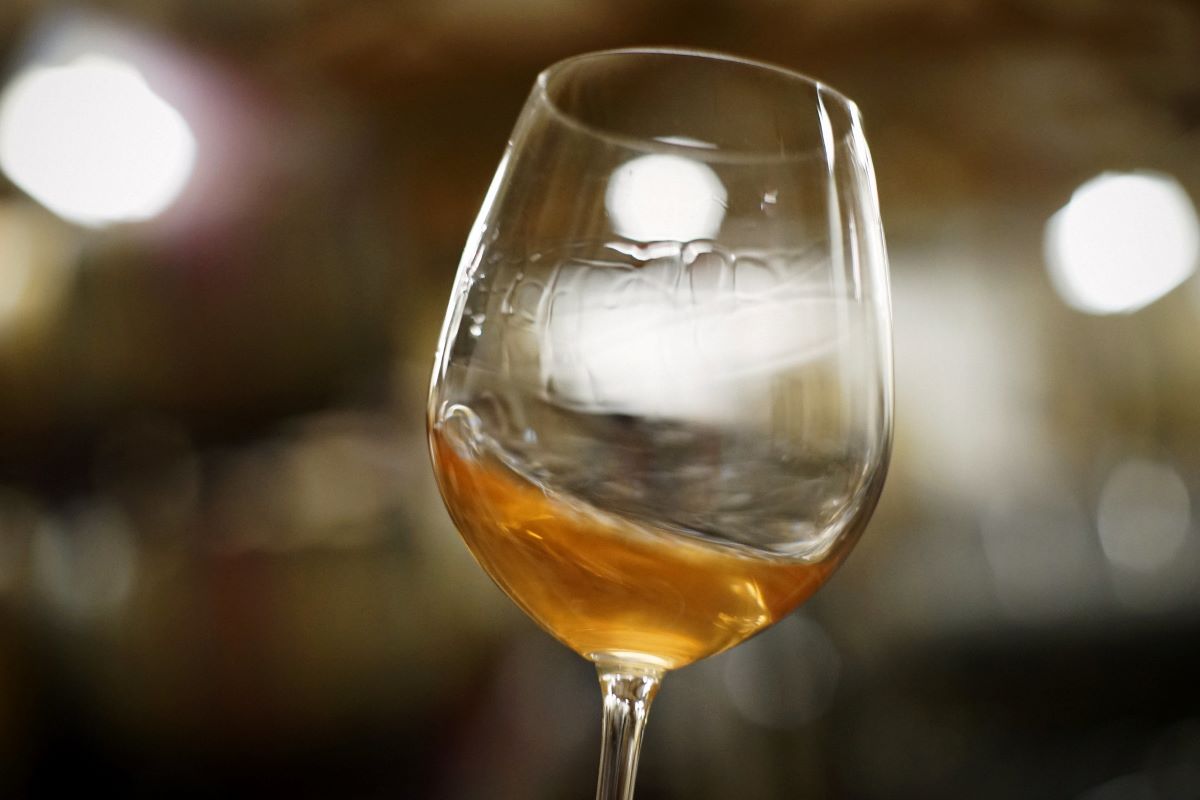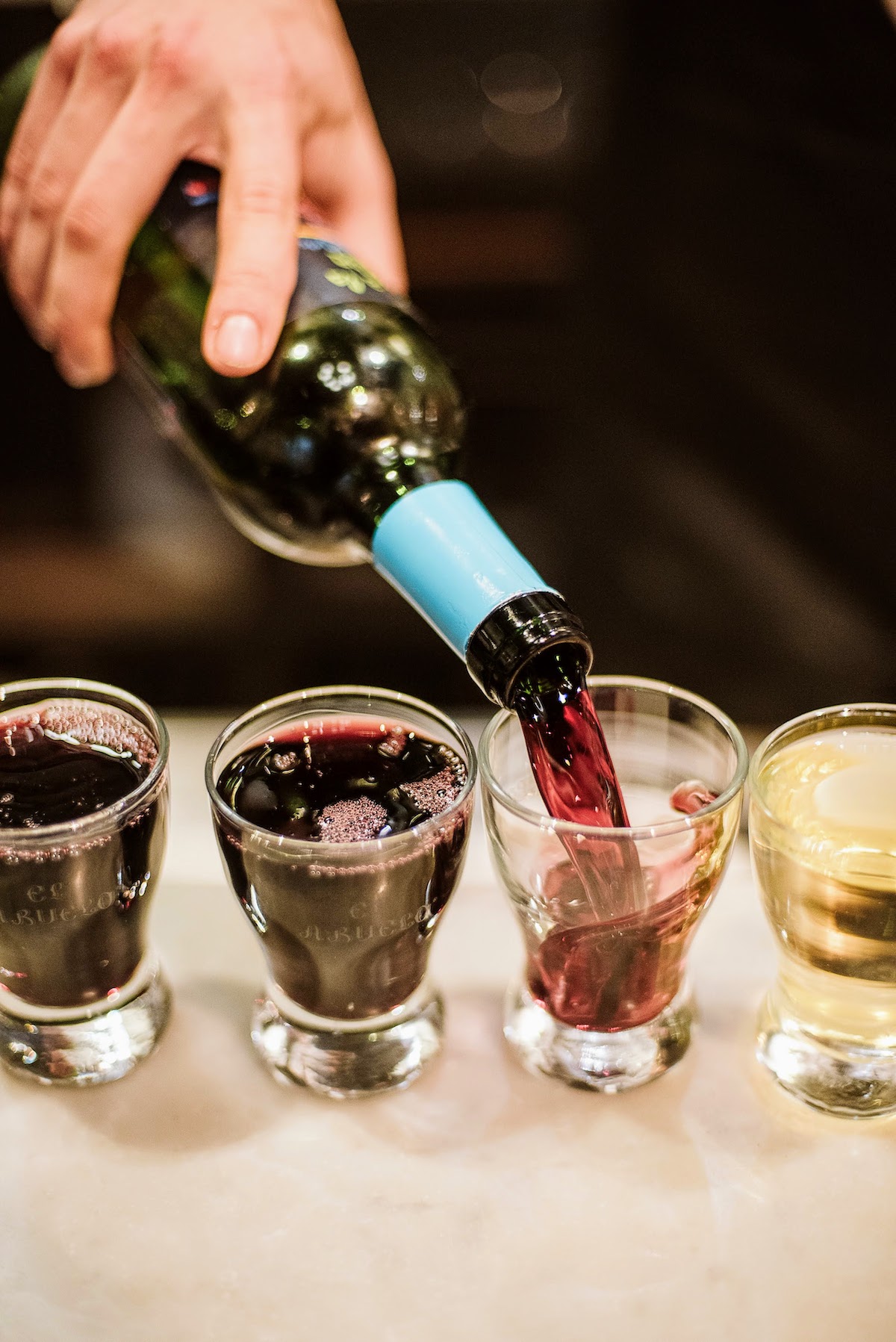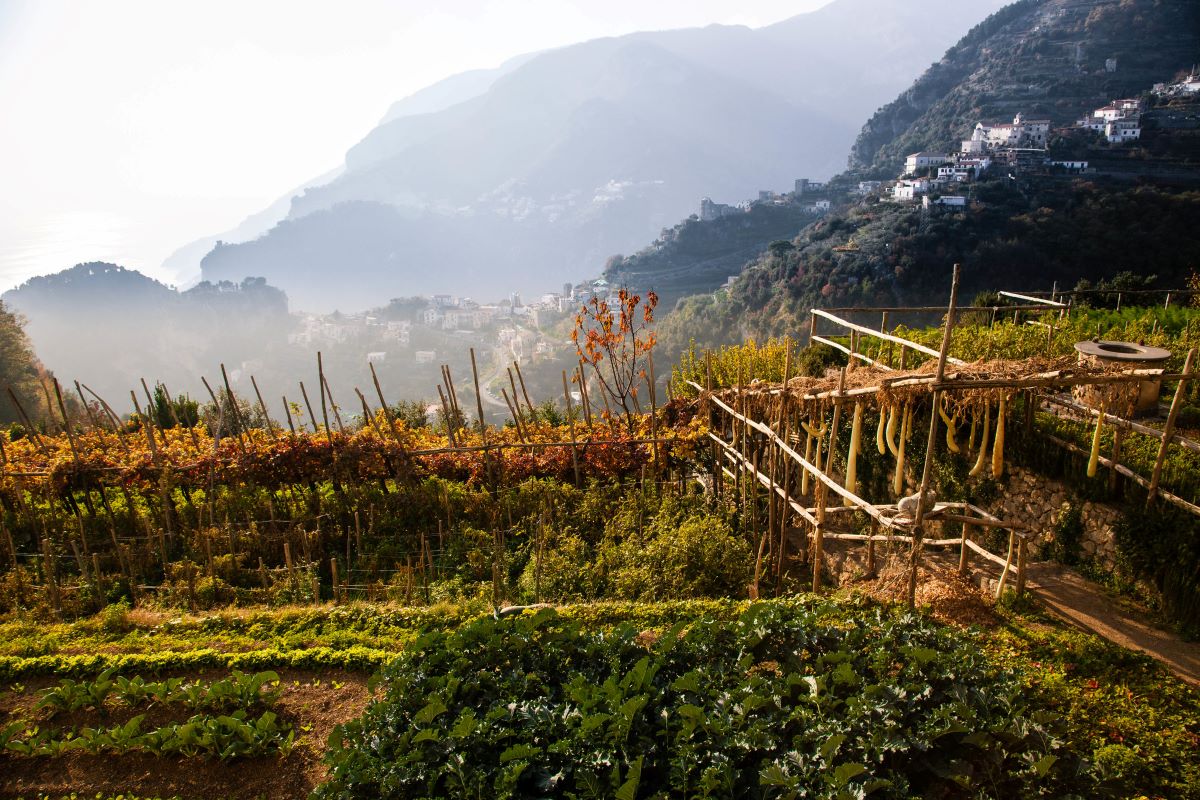Picture your trip to Naples or the Amalfi Coast and images of steaming pizza, lemon groves, and beautiful seascapes probably come to mind. But how often have you considered the wines of Campania? This region is one of the best when it comes to fantastic southern Italian wines.

The fresh sea breeze and volcanic soils make it a perfect location for grape vines, producing both reds and wines loved throughout the region. But now it’s your turn – time to start sipping your way through Campania!
History of Southern Italian Wines
Campania and Southern Italy were lucky in the long history of wine in Italy. Southern Italian wines were spared from many of the historic devastations like the root-devouring Phylloxera. The porous volcanic soil protected the vines. This all means that in southern Italy, even today you can enjoy some of the most ancient grapes varieties in the country.
Campania wines were some of the most beloved by the Romans, especially the famous Falernum wine. This was the most sought-after white wine across the Roman empire. Though officially described as a white wine, it was probably closer to what you might expect from an orange wine.

Highly alcoholic, it was said it would light a fire if brought to a flame. Rather than just fermented grapes, this refined wine was also blended with aromas like smoke, spices, resin, and even sea water!
Today Campania is one of the most dynamic regions when it comes to southern Italian wines. Beloved for both red and white wines. You’ll always find the right bottle to pair with the delicious local cuisine (who said you needed a beer with pizza!).
Wine of Campania: Main Grapes Varieties
One of the greatest strengths of Southern Italian wines is that they’ve retained many of their ancient native grapes, and Campania is no exception.
The most popular grapes planted are Aglianico and Falanghina. Aglianico is a red grape, native to southern Italy. It is thick-skinned and is very resistant to heat and drought. It is high in tannins and acidity – which has led it to take on the name “Barolo of the South.” If you are into the heavy red wines of Piedmont, you might fall in love with wines based on this grape.
Keep your eyes out also for Piedirosso, another red native grape. This grape softens blends and adds fantastic aromas to the wine.
Falanghina on the other hand is a white grape, famous for its crisp acidity. It is one of the most ancient grapes in Campania. If you love a crisp citrus-focused white wine, look for a bottle of this variety.
Other white wine grapes that are loved in the area are Greco, Fiano, and Biancolella.
But what you should look for on the wine list if you want to try these varieties? Let’s jump into the different wines and appellations!

Southern Italian Wine Appellations
Falerno del Massico DOC
Looking for a taste of history? Try a wine from Falerno del Massico! One of the most ancient southern Italian wine regions.
Named after the famous Falernum wine loved by the Romans, this wine comes from the same area around Monte Massico. This appellation was revived in the 1900s to highlight the legendary wine.
However, while the Roman wine was produced with white grapes, this wine is produced with rich red grapes—a beautiful blend of Aglianico, Piedirosso, and Primitivo. Aglianico is the most prominent of the three, producing a tannic wine with elegant aromas and a full body.
Under this appellation, you can also find a white wine made with Falanghina for a fruity light wine.

Aglianico del Taburno DOCG
If you are curious about the Aglianico grape variety, look for a bottle of Aglianico del Taburno. A varietal wine that is left to age at least two years. This full-bodied wine has higher acidity than other Aglianico wines.
Expect flavors of deep red fruits and a velvety sensation. A glass of this wine is best enjoyed with a secondo, like roasts.
Vesuvio DOC
Wines from the Vesuvio DOC application come right from the slopes of the volcanic mountain of the same name. These wines are also sometimes bottled under the name “Lacryma Christi”. The name means the tears of christ, which comes from a little local legend.
It is said that Lucifer fell from heaven into the Gulf of Napoli, and Christ wept at the loss of an angel. His tears fell onto the slopes of the volcano, and from them sprung up the local vines.
The red wines of this area and based primarily on Piedirosso, while the white wines focus on Coda di Volpe Bianca – a local grape with moderate acidity and mineral aromas.
Both the red and white wines are excellent choices for an easy aperitivo during your visit to Napoli.
Falanghina del Sannio DOC
This is one of Campania’s largest applications, but you’ll always find a surprise in every bottle. Being a large production area, each vineyard grows in different soil, producing different results.
You can always count on this white wine to welcome you with fruity aromas, and crisp acidity.

Ischia DOC
Ischia’s appeal doesn’t stop at its fantastic hot springs, or beautiful surrounding sea, you’ll find even more wonder in a glass of local wine.
The Greeks were the first to bring viticulture to the island in the 8th century BC. And with the island’s lush vegetation, the vines thrived for centuries to come.
Red wine lovers – look out for a bottle of Piedirosso, an easy-drinking red with elegant mineral notes thanks to the island’s volcanic soil.
And if you are looking for white wine? Ischia shines with its local grape Biancolella. The wine has strong mineral notes and a salty edge. There is also a sparkling version available as well. An excellent bottle to pop open and celebrate your time in one of the most beautiful regions of Italy.
Costa d’Amalfi DOC
You might be imagining the terraces of lemon groves when you think about the Amalfi Coast, but this natural wonder also is home to many vineyards.
Built up on steep terraced walls, this type of viticulture is called heroic for its difficult terrain and challenges in farming the area.
While along the coast you’ll see local favorites like Falanghina, Piedirosso, and Aglianico, you’ll also see some unique varieties for your curious palates. For something special to the area look for Ginestra, Ripolo, and Pepella when it comes to white wines and Tintore for a red.

Other Wines of Campania
Being one of the most dynamic regions when it comes to southern Italian wines, Campania’s great wines don’t end there. There are plenty more for you to sip and explore. Here are a few more names to keep in mind while you are tasting through the region:
Taurasi DOCG: A red wine based on Aglianico made with ancient, ungrafted vines. The wines are aged for three years minimum.
Greco di Tufo DOCG: The smallest wine-growing appellation, the vines grow in sulfur-rich soil, producing a vibrant and refreshing wine with mineral and smoky notes.
Fiano di Avellino DOCG: Another excellent white wine that is grown on volcanic soils. It is considered a great white wine for aging. As time goes on the wine develops nutty and smoky notes.
Asprinio di Aversa DOC: Made from a unique local variety of Asprinio, this white wine is particularly interesting for its vine training. The vines are grown still in an ancient method, known as Alberata Aversana, which uses trees as hold for the reaching vines.

An Italy local for nearly 10 years, Evelyn has traveled to nearly every region getting overly excited about cute doors and nonni cafes. She’s an archaeology and art history major who fell in love with Italian wine, getting her Sommelier and Italian Wine Scholar certifications. She’s transformed her passion for La Bel Paese into a travel planning and relocation consultancy with Colline Alle Montagne. You’ll find her on Instagram @collinemontagne, always sipping a glass of wine and sharing the authentic life in Italy.